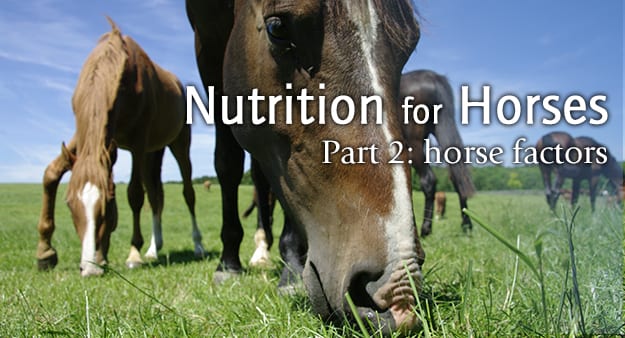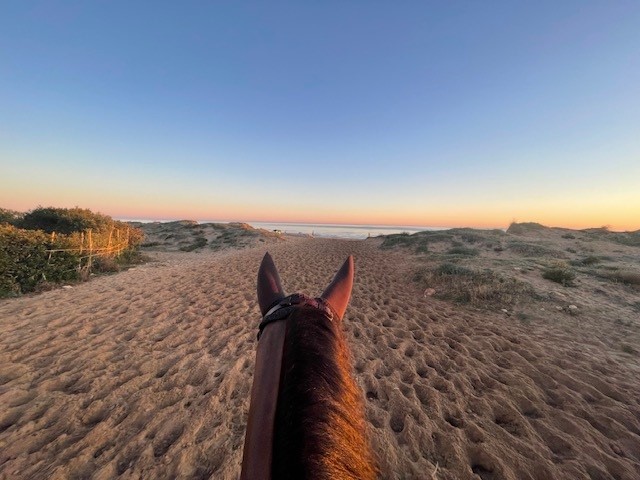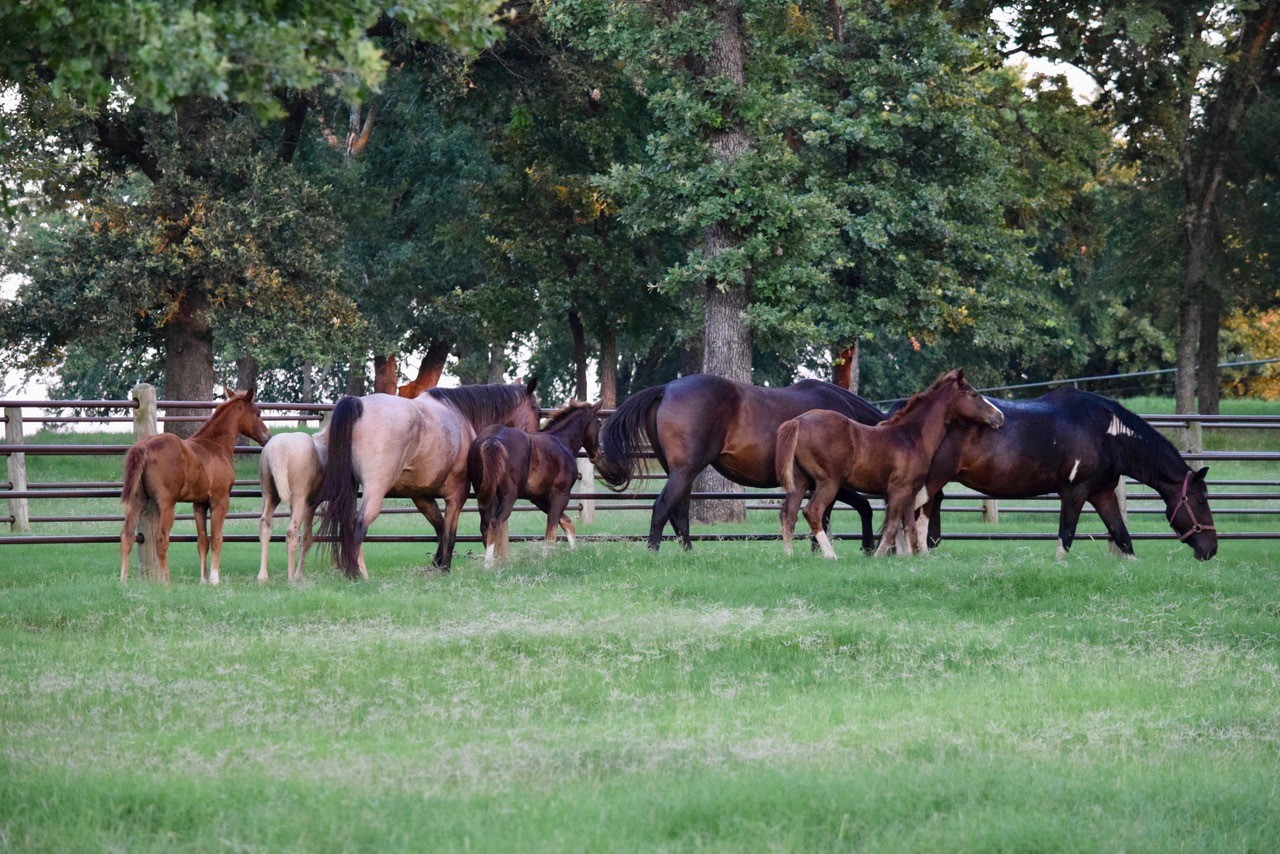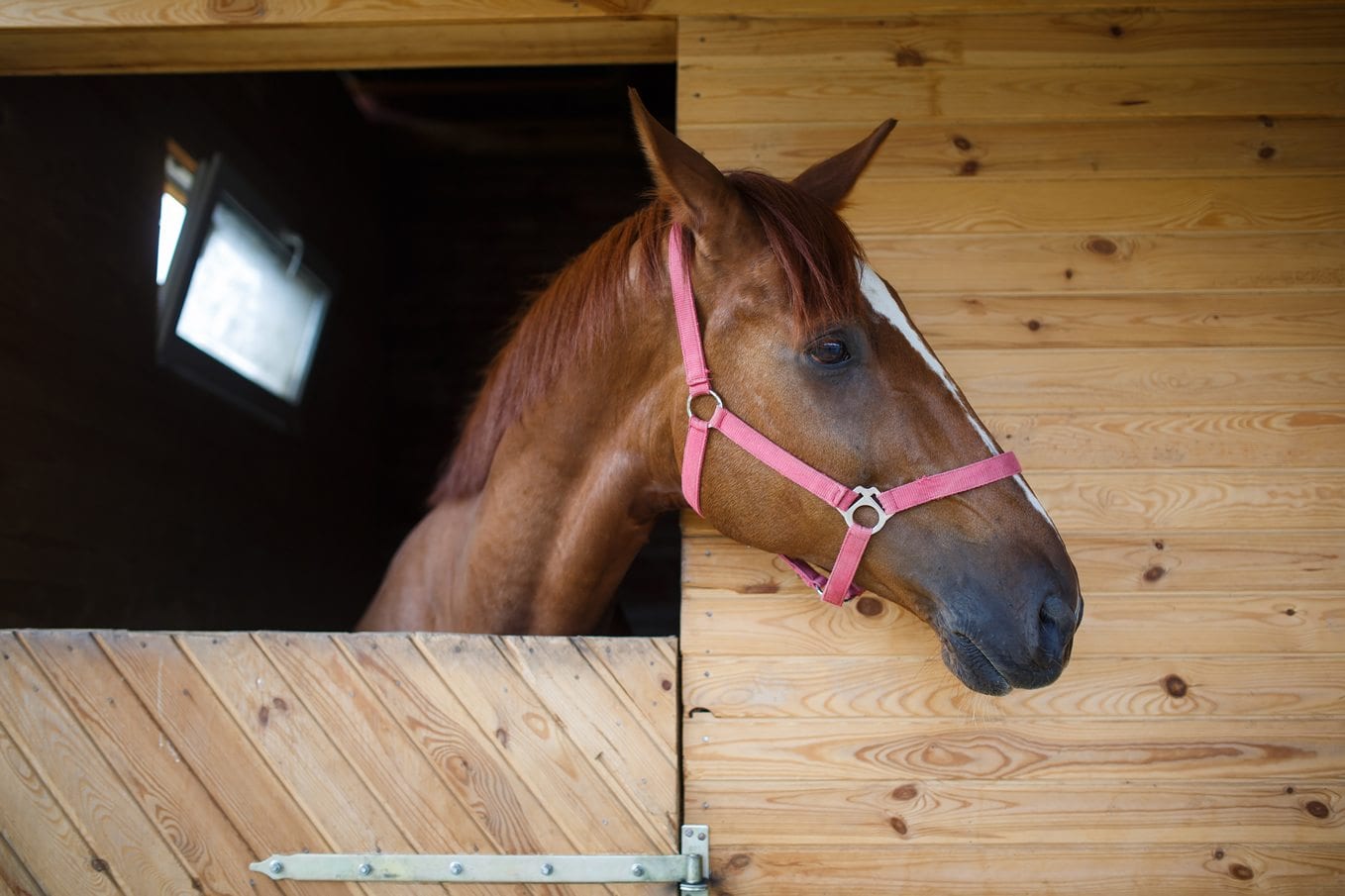 In Part 1 of this series, 3 Factors to Evaluate Your Horse’s Nutritional Needs, we talked about the importance of evaluating your horse’s individual needs, diet, and feed program in order to best meet his unique nutritional needs. In parts 2, 3 and 4, we’ll look more closely at specific factors that influence nutrition. This method was adapted from a model presented by the American College of Veterinary Nutrition. Every horse requires a different approach to feeding and nutrition, but by presenting an ideal model, we hope to give you tools to evaluate how, when and what you feed your horse.
Part 2: Horse Factors that affect nutrition requirements starts with the most basic information about your horse: the physical aspects of breed, body type, and age. It also considers a horse’s usage, including the type and level of activity. All of these factors dictate how much energy is required to support basic functions like blood circulation and a horse’s physical activity. It also influences the amounts of certain nutrients different horses require.
You take all of these factors into consideration every day, whether you realize it or not. You wouldn’t ask your senior horse to exercise as vigorously as your five-year-old horse, for example — so you shouldn’t assume they should follow the same diet. By isolating each factor and analyzing how it applies to what you feed your horse, you may gain a new perspective on his actual nutritional needs.
In Part 1 of this series, 3 Factors to Evaluate Your Horse’s Nutritional Needs, we talked about the importance of evaluating your horse’s individual needs, diet, and feed program in order to best meet his unique nutritional needs. In parts 2, 3 and 4, we’ll look more closely at specific factors that influence nutrition. This method was adapted from a model presented by the American College of Veterinary Nutrition. Every horse requires a different approach to feeding and nutrition, but by presenting an ideal model, we hope to give you tools to evaluate how, when and what you feed your horse.
Part 2: Horse Factors that affect nutrition requirements starts with the most basic information about your horse: the physical aspects of breed, body type, and age. It also considers a horse’s usage, including the type and level of activity. All of these factors dictate how much energy is required to support basic functions like blood circulation and a horse’s physical activity. It also influences the amounts of certain nutrients different horses require.
You take all of these factors into consideration every day, whether you realize it or not. You wouldn’t ask your senior horse to exercise as vigorously as your five-year-old horse, for example — so you shouldn’t assume they should follow the same diet. By isolating each factor and analyzing how it applies to what you feed your horse, you may gain a new perspective on his actual nutritional needs.
Physical Factors That Influence a Horse’s Nutrition Requirements
The National Research Council of the National Academies provides documents on the nutrient requirements of animals, including horses. These requirements change according to various factors of the horse’s physical make-up, including its breed, body type and weight, age, and life stage.Breed
Different breeds have different nutrition requirements: If you feed a Morgan the same number of calories as a Thoroughbred, you’ll either have a very fat Morgan, or a very thin Thoroughbred. Each breed’s metabolism handles feed at different rates . Arabs and Thoroughbreds tend to require more nutritional attention than Warmbloods or draft-type horses, as they often carry less weight. Furthermore, some breeds (e.g., miniatures, ponies, Paso Finos, Morgans, Quarter Horses, Arabians) have a higher genetic tendency toward developing equine metabolic syndrome, necessitating attention to the sugar/starch content of the diet.Body Type and Weight
A horse’s body type is often closely tied to its breed (see above), but a horse’s weight can fluctuate throughout the year and with a varied training schedule. A horse’s weight is also affected by its diet, and changes in weight may signal health issues. Keep a close eye on weight changes, and know what your horse’s baseline looks like (and also when he’s looking his best!). Remember that “fixing” an underweight horse is not as simple as throwing grain at the problem. Likewise, slimming down an overweight horse requires a balanced, well-rounded approach.Age
A horse’s age is a critical factor in deciding his diet. A horse’s ability to ingest essential nutrients is compromised as he ages, for a variety of reasons. Saliva production decreases, and digestive enzymes are not as plentiful. Over time, the fingerlike projections in the intestinal tract — called “villi” — don’t work as well. Like humans, older horses’ teeth (as well as kidneys and liver) deteriorate, and their immune systems slow down. That makes older horses more susceptible to environmental factors, such as cold weather or lower-quality feed. So, a senior horse may require more energy to maintain a healthy weight, as well as specific nutrients to support basic functions. All of these factors should be counterbalanced with a nutrition program that compensates for specific challenges. Growing Horses: Foals and weanlings generally fall much lower on the Henneke Body Condition scale, which means they have higher caloric needs. The National Research Council defines the caloric requirement of a growing horse as the sum of the energy needed for maintenance and the energy needed for gain. In addition to energy (calories), growing horses require additional protein to aid cell development.Usage Factors That Affect a Horse’s Nutrient and Energy Requirements
Pregnant and Nursing Mares
Broodmares’ nutritional needs fluctuate throughout gestation and while nursing, but remain consistently higher than those of horses in a physiological state of maintenance. Mares in the first month of lactation require the highest amounts of calories, protein, calcium and phosphorus — higher even than horses in heavy work. Studies suggest that lactating mares increase voluntary forage intake by 65 percent, compared to those same mares during pregnancy. Additionally, nursing mares require additional water to make up for dehydration caused by nursing. Pregnant mares should also be kept at a higher number on the body condition scale (ideally 6 to 6.5 on the Body Condition Scale) for increased reproductive performance and to create body tissue.Breeding Stallions
A stallion also needs additional calories and protein. The amount of dietary energy required during the breeding season will be affected by breeding frequency; refer to the National Research Council’s Nutrient Requirements of Horses for a tool to help you chart these differences.Performance and Training Horses
A performance horse in active training has specific nutritional needs that support a more demanding schedule than a horse that is turned out much of the time. The needs of performance horses will vary between discipline, depending on the frequency, intensity and duration of exercise. A racehorse will require a different program than an endurance horse. Be sure to check with a nutritional professional to customize the specific blend of nutrients (protein, fats, carbohydrates and the like), vitamins and minerals, and level of calories required for a particular travel, training and competition schedule. Nutritional challenges for performance horses include:- Increased caloric requirements
- Limited turnout
- Frequent travel
- Physical demands
- Emotional challenges
Up Next: Part 3: Dietary Factors
In order to meet individual horses’ needs through good nutrition, it’s important to understand exactly what horses need from their diets, and how we can help provide it safely and appropriately. We’ll talk about basic nutrients all horses need, where they are commonly found, and areas of diet that can influence health in Part 3: Diet Factors. Be sure to subscribe to the SUCCEED blog so you don’t miss any part of this series.This series was reviewed separately by two independent experts. One is a board-certified veterinary nutritionist who wishes to remain anonymous. The other is Juliet M. Getty, Ph.D. an equine nutritionist, writer, consultant and speaker. Dr. Getty currently serves as a panelist of the Equine Sciences Academy and formerly as contributing nutrition editor for Horse Journal.



